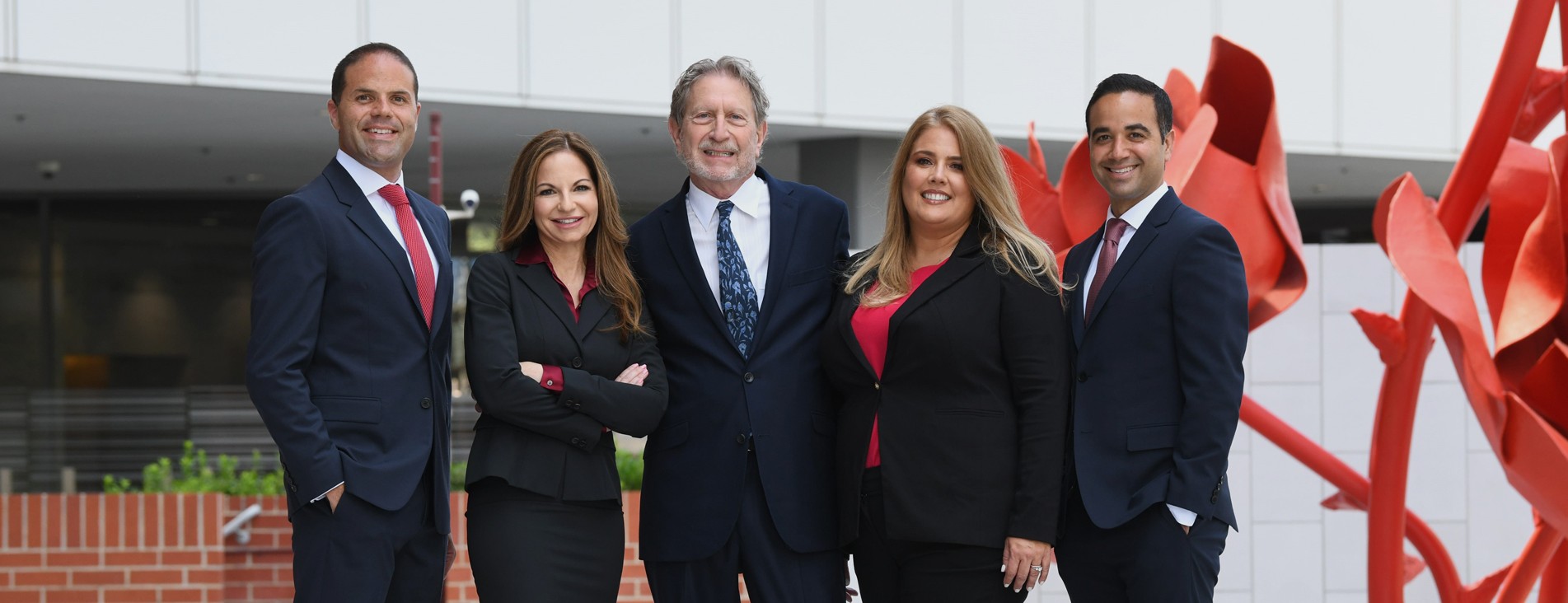One of the most frequently asked questions when pursuing a car accident claim is, “Do I need a police report when filing for a claim?” While having a police report may speed up the process, it isn’t necessarily required when recovering from the damages of the accident.
Here are the following things you need to know when filing a car accident claim without a police report.
Why Do Most Accidents Need A Police Report?
An accident report conducted by the police describes the events during auto accidents. Obtaining a police report about your car collision poses several advantages when pursuing compensation for the damages of the crash, such as:
Police reports provide necessary information about the car accident.
Once a police officer responds to the accident scene, they will examine the nature of the accident. Through this, they will provide an opinion determining the party liable for the incident based on their gathered evidence.
A police report contains the following information:
- Contact details of the drivers involved, such as:
- full name,
- home address,
- phone number, and
- insurance provider number.
- Car details, such as:
- plate number,
- photos of the vehicle, and
- phe make of the car.
- Conditions of the accident scene, such as:
- weather at the time of the accident,
- road conditions, and
- exact time and date of the crash.
- Testimonies of the following:
- the drivers involved,
- other victims of the collision, and
- witnesses of the accident.
- A diagram or drawing of the car accident, including:
- path of the vehicles, and
- point of collision
- Traffic violations of the at-fault party.
- The police’s conclusion about the cause of the collision and the party held liable for the accident.
Police reports establish the cause of the crash.
Based on the facts of the accident, the police officer will determine the cause of the crash. Typically, the report’s conclusion contains facts and opinions about the case.
The facts of the accident are those details that are present at the scene, such as:
- the drivers’ information,
- plate numbers of the vehicle, and
- time, location, and date of the accident.
Meanwhile, the opinion of the police identifying the possible culprit for the crash may or may not be valid. Sometimes, the initial report provides the wrong conclusion about the car crash. In such instances, a legal expert must prove the actual culprit of the crash by providing solid evidence to support their claim.
Insurance providers may ask for a copy of your police report.
In most cases, the other driver’s insurance provider will ask for a copy of the accident report to validate the damages of the crash. If the other driver’s fault for the crash is obvious enough, the insurance provider may likely accept liability.
However, most insurance providers will try to dismiss the claim or reduce the compensation. If the police report says that you are at fault, you may need to hire a lawyer to defend your claim and prove that you are innocent of the collision.
Do I Have to Report All Accidents to the Police?
In California, you don’t have to report all accidents to the police. According to the Department of Motor Vehicles, a car accident without a police report is legal if it results in:
- minor property damage amounting to less than $1,000, and
- there are no bodily injuries resulting from the crash.
When is it illegal not to report a car accident?
Failure to report a car accident to the police may be illegal if the crash falls under these circumstances:
- The incident results in property damages of $1,000 or more.
- The accident is a hit-and-run case.
- The crash results in bodily injuries.
- A wrongful death ensues from the collision.
You must also remember that if the crash victims incurred severe bodily damage or wrongful death due to the accident, you must report it to the police within 24 hours after the collision.
Failure to do so will result in several legal penalties, such as:
- State imprisonment for two to four years,
- County jail time for 90 days to 1 year, or
- Fines amounting to $1,000 to $10,000.
Do I have to Report an Accident to my Insurance Company?
Yes, there are several reasons why you should report the crash to your insurance provider, such as:
Reporting the accident is indicated in your contract.
You will likely need to report the car accident to your insurance company if it is required and indicated in your policy contract. Usually, you must notify the insurance company within 30 days after the accident. In some instances, you may submit the report later than the allowed date. However, you must provide written proof justifying the late filing.
Failure to comply may lead to claim denial.
If you couldn’t report the accident to your insurance provider, they may use this as a loophole and refuse to pay for compensation, especially if reporting the crash is stated in your contract. This is particularly critical in hit-and-run cases.
Reporting the collision to the insurance provider will help gauge the probable costs of the accident. In this way, they will check if the expenses of the accident fit your policy limit. If the damage costs exceed the policy limit, the insurance provider will likely dismiss your claim.
Can I File a Police Report Days after the Car Accident?
If you didn’t get a police report after the accident, you might still report it to the police days after the crash. In most instances, this is allowed when:
- You have late-appearing injuries caused by the accident.
- The driver hit your parked car, and you didn’t notice the damage instantly.
- The crash resulted in minor damages, and you weren’t aware of the total costs of the damages.
However, you must remember that you, an insurance broker, or a legal representative may only file a report 10 days after the accident. This can be done by gathering the necessary information and submitting it to the DMV office:
- Date, time, and location of the accident,
- Your full name and driver’s license number,
- Your home address.
- Your vehicle registration card, and
- Your insurance company name and policy number.
You may also need the other driver’s details, such as their:
- Date of birth,
- Name, license number, and state,
- Vehicle license plate number and state,
- Insurance policy provider number and expiration date,
- Vehicle owner’s name and address, and
- Damages from the crash.
- Complete an SR-1 form.
- Submit the form to the nearest DMV field office or online at www.dmv.ca.gov.
Failure to comply poses several legal consequences, such as license suspension. This is why you must seek help from a personal injury lawyer, who can assist in examining the damages and filing the accident within the allowed timeframe.
Can I File A Claim Without A Police Report?
In California, it is possible to pursue compensation for a car accident without a police report. While an accident report can aid in speeding up the process, failing to have one won’t strip off your right to file a case.
3 Steps to Receive Compensation from a Car Accident without a Police Report
STEP 1: Gather other necessary evidence
Compiling evidence will help retrieve compensation from the at-fault party if you didn’t get a police report after the accident. These pieces of evidence include the following:
- Accident-related treatment costs from every type of provider,
- Tax returns, direct deposit records, and any proof of income loss,
- Vehicle repair or replacement expenses, and
- Photos of the accident scene.
Aside from proving liability, this evidence can help calculate the total damages from the crash. Generally, two types of damages dictate your overall settlement amount:
Economic damages are quantifiable and are usually backed by receipts or invoices. Examples are:
- Medical costs,
- Lost wages,
- Medical equipment and personal care, if needed,
- Transportation costs, and
- Out-of-pocket expenses.
Non-economic damages, on the other hand, are harder to quantify. These come into play when you incur severe suffering, resulting in a drastic change in your lifestyle. Non-economic damages include:
- Loss of life enjoyment,
- Pain and suffering, and
- Emotional trauma.
You might believe that these non-economic damages are challenging to compute and impossible to add to your settlement amount. However, an experienced injury lawyer has the knowledge and experience in maximizing payouts, including these non-monetary damages.
STEP 2: Contact a personal injury lawyer
Some may think that claiming restitution for the crash is easy, especially if the facts of the accident go their way. However, in most cases, the insurance provider will do anything in their power to reduce your compensation.
If you fail to secure a police report after your crash, the insurance company will likely question your inaction and use this to dismiss your case. In this case, hiring an attorney is the smartest way to win your claim.
A personal injury lawyer will communicate with the other driver’s insurance provider to ensure you receive the compensation you deserve. They will be with you through the process and assist in the following ways:
- Explaining the insurance policies to you,
- Securing a maximized payout by exhausting all possible damages to cover, and
- Provide you with honest and appropriate legal options that fit your needs.
Step 3: Filing the claim within the statute of limitations
The most important requirement you must be mindful of when redeeming your compensation is understanding the statute of limitations.
The statute of limitations is the allowed timeframe for filing an accident claim against the at-fault party. This is essential in personal injury cases because of the following reasons:
- Evidence and memories of the crash can disappear over time.
- Avoid making repeated legal threats to someone over events that happened decades ago.
If you are pursuing a personal injury case, there are certain time limitations depending on the outcome of your crash:
| Type of violation or case | Damages from the accident | Allowed time frame |
| Personal injury | Property damages | 3 years from the collision date |
| Physical injuries | 2 years from the discovery of the injury
(If you have a late-appearing injury, you have one year to file a claim.) |
With the limited time you have to file and prove your case, you don’t have the opportunity to use trial and error to win your case. The best thing you can do is hire a legal expert who knows and understands the appropriate steps and actions to take based on the facts of your claim.
Does Insurance Cover Car Accidents Without Police Reports?
Typically, insurance companies accept liability for car accidents without police reports, especially if there are minor damages from the crash.
However, claiming compensation may become challenging if you were required to file but couldn’t do so. The process will take longer since you will need to justify the damages of the collision through other evidence. This is where the need for a lawyer comes in. They can help you gather evidence to support your claim and protect your rights to win your case successfully.
Will my Compensation Be Reduced If I Don’t Have a Police Report?
In reality, being in a car accident without a police report may raise questions about the cause of the crash, especially if it resulted in severe damages. If you fail to counter the other driver’s argument about your missing police report, you may likely receive a reduced settlement amount. In some unfortunate circumstances, you may even lose your case.
Other reasons why the insurance provider refuses to pay compensation may include the following:
- You lack solid evidence to prove liability, such as police reports and photos of the collision,
- The other driver’s policy limit is not enough to cover the total damage expenses, and
- You are partially liable for the crash.
Suppose the police determine that you are partly responsible for the car accident, and you can’t defend your innocence in the crash. In that case, you are likely to receive a reduced payout. For instance, if you are 30% to blame for the crash, you will receive 70% restitution.
Do I Need A Lawyer When Filing For A Claim Without a Police Report?
Technically, you may pursue an accident claim without a lawyer if the crash resulted in minor damages only. However, hiring a lawyer may be critical if the collision resulted in severe damage and you have several loopholes in your case, including a car accident without a police report.
The other driver’s insurance provider would likely downplay your injuries and other damages if you didn’t get a police report after an accident. You will then need to justify the cause of your injuries through the following documents:
- Vehicle repair or replacement expenses,
- Doctor’s diagnosis of the cause of your injury,
- Treatment or rehabilitation costs,
- Medications and other prescriptions,
- Requirement needed to sustain your lifestyle if you have a permanent disability, and
- Other medical bills.
Handling a case may be challenging if you have injuries to recover from. This is why it is crucial to have an attorney by your side who will take your case by doing the following:
- Understanding the nature of your accident,
- Apart from the police report, collect other evidence to support your claim,
- Prove liability,
- Calculate the total settlement amount,
- Defend your rights, and
- Proceed to trial if necessary.
Our lawyers at Jacoby & Meyers will help you secure a maximized payout despite the fact that you do not have a police report to back your claim. We will use our knowledge, experience, and expertise to investigate your accident and provide legal options that will guarantee a winning outcome for you! Contact us at 800-992-2222 for a free consultation today.
Call or text 888-522-6291 or complete a Free Case Evaluation form








